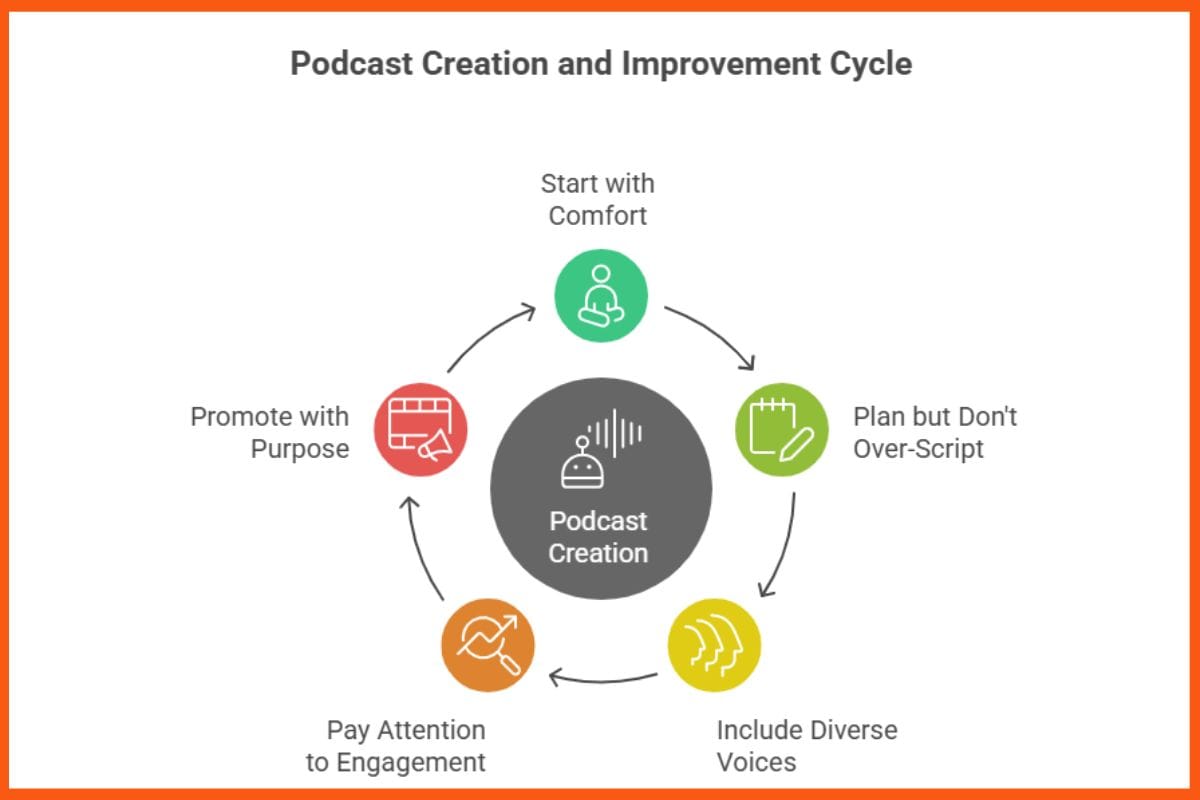This article has been contributed by Puneet Gulati, Founder & Promoter at Tecsox
In today’s fast-moving digital world, leadership persuasion is no longer done only in boardrooms, with annual reports, and slick keynote speeches. The science behind how leaders relate to people has changed and has found one of its most powerful tools to be the podcast as a way to transmit ideas, build trust, and resonate with audiences on a deeper level.
For those who are at the forefront of fast-moving innovation-intensive businesses with changing customer expectations around the clock, podcasts offer something rare: first-hand, raw access to interested active listeners who are very often themselves decision-makers. Unlike mainstream communications wherein announcements can ring starchy or overly rehearsed tones, podcasts are all about honesty and frankness and open discussion. That’s exactly what audiences want nowadays.
Why Podcasts Matter for Leaders
Podcasts are not another communications vehicle. They are a platform for thought leadership, influence, and connection. They are unique in these following ways:
- Authenticity Instead of Perfection: Podcasting liberates leaders to speak out of their true voice. Instead of being compelled to stick with scripts or press statements, leaders are able to speak stories, ideas, and teachings authentically. The nonscripted style engenders credibility and makes people feel personally involved.
- Reach and Accessibility: Podcasts transcend boundaries with complete convenience. Whomever is hearing it from New York, Singapore, or Mumbai is hearing exactly what you are saying. That is why podcasts are an affordable and scalable alternative to disseminate ideas and acquire global recognition.
- Deep Engagement: Active listeners are engaged with podcasts. Unlike fleeting social media attention, podcasts are listened to with complete attention. It is consumed during commutes, runs, or heavy downtime situations when one is ready to digest big ideas, heavy topics and fresh angles.
- Power of Storytelling: The greatest leaders are accustomed to the power of storytelling, and podcasts are the perfect soapbox. Sharing challenges, things learned, and behind-the-scenes stories makes leaders appear at once credible and relatable.
Lessons From Leadership
One thing we see time and time again with leadership is therefore: direct connection is crucial. While I haven’t yet begun my own podcasting show, leadership efforts whether building teams, driving innovation, or introducing new products have ingrained some governing principles leaders would do well to remember when embarking upon podcasting:
- Know who you are talking to: Specify whether you’d like to address industry colleagues, future entrepreneurs, or end-users who care about technology. Everything is about relevance.
- Start with value: never with promotion of oneself. Customers are looking for insight, inspiration, or applicability. Create something about education and effect, never about promotion.
- Be reliable: Influence is built up over time. A continuous stream of shows creates recognition and confidence.
- Keep it conversational: Invite hosts, guest hosts, experts, or colleagues. Conversation makes podcasts interesting, collaborative, and engaging to listen to.

Podcasting in Today’s Business Landscape
In rapidly changing sectors whether technology, financial services, or consumer goods podcasts are especially effective. They provide leaders with a platform to:
- Make hard topics simple: From innovation and strategy to technical concepts, podcasts make them accessible and straightforward.
- Communicate vision and strategy: For fast-growing companies, podcasts are a low-key yet high-impact vehicle for communicating culture, values, and long-term vision.
- Tap into talent: The next generation is a large user of podcasts. Leaders who show up in this space recruit new talent and energize and inspire their teams.
Practical Tips for Leaders Starting a Podcast

- Start with whatever is most comfortable to you: Play in areas you are strongest at where your expertise and experience can add unique value. Audiences connect most when they think they are learning from experience first-hand.
- Plan but don’t over-script: Having a framework makes shows tight and to the point but reading verbatim kills spontaneity. The best podcasts are like natural conversations and not scripted speeches.
- Include diverse voices: Request help from colleagues, experts, or even customers to add to the discussion. Varied opinions add depth, create new ideas, and make it all fascinating.
- Pay attention to engagement: Note feedback from listeners, downloads, and social chatter. These are indicators you can decipher to determine what is working and how to refine and improve with time. Pay attention to engagement. Note feedback from listeners, downloads, and social chatter. These are indicators you can decipher to determine what is working and how to refine and improve with time.
- Promote with purpose: Publish episodes on LinkedIn, industry groups, and communities where you can bring value with your voice. Just do not make it sound like you are pitching a podcast.
Beyond Influence: Creating a Leadership Legacy
Podcasting is no longer simply about building influence today but about leaving behind a document of evidence to reflect upon tomorrow as well. By sharing your vision, lessons learned, and potentially mistakes, you create a digital footprint you can enlist to inspire peers, employees, and later leaders.
At a moment when attention is short and authenticity is rare, podcasts are uncommon. They present a simple, uncomplicated, and lasting vehicle through which leaders can shape conversations, gain credibility, and spread knowledge. From transitioning outside the boardroom to being inside listeners’ headphones is no longer an option but a savvy means to access a digital-first world.
Conclusion
Podcasting is transforming how leaders communicate. By being present genuinely, value-driven, and regular, leaders can spread their influence far beyond their organizations, connect with a global community, and create a body of work with a lasting legacy beyond the episode itself.
For present-day leaders, transitioning from boardrooms to earbuds is less about being heard and is increasingly about being understood and trusted and remembered.

